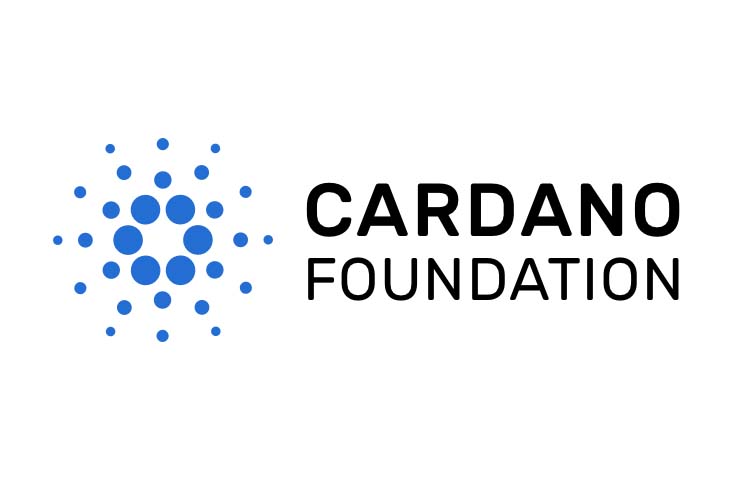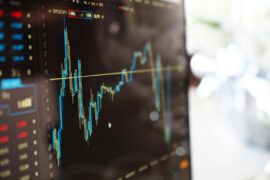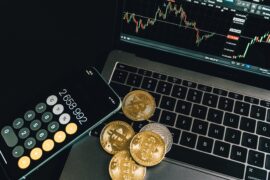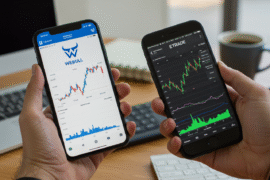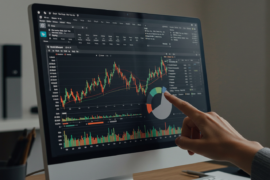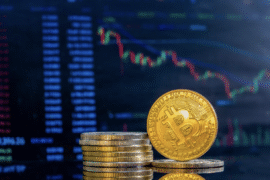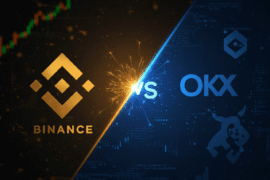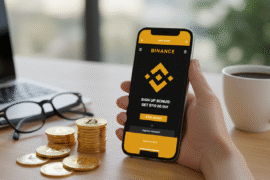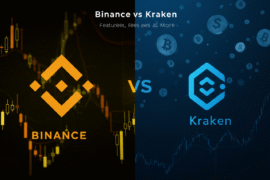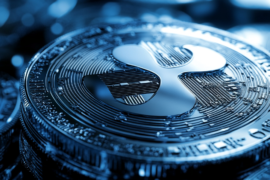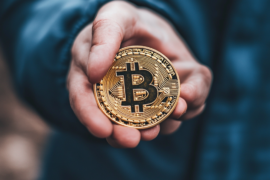This article may contain references to products or services from one or more of our advertisers or partners. We may receive compensation when you click on links to those products or services. Nonetheless, our opinions are our own.

Updated by Albert Fang
What is Cardano?
Cardano is a blockchain and cryptocurrency project focused on taking a scientifically tested and peer-reviewed approach to this fast-developing sector—a philosophy that has gained it much recognition in the crypto community since the project’s inception in 2015. One of its major selling points is that rather than being run by a single team, based on a single whitepaper, it is being developed as a collaborative effort between researchers and universities worldwide, based on the latest research.
Like other cryptocurrencies, it runs on a decentralized platform that gives users high levels of privacy and security. However, they also aim to be accessible to regulators by allowing Cardano’s applications to be customized on a case-by-case basis. This provides a balance between the highly libertarian nature of most cryptocurrencies and the centralization of existing financial institutions. Users will be able to opt in to the more centralized applications, but can remain just as anonymous as they would on any other blockchain if they choose.
Cardano is not actually the name of a cryptocurrency, but the name of a larger project which has two main pieces: a cryptocurrency and a smart contracts platform. The cryptocurrency part is usable as digital cash, secured through its built-in cryptography. Its smart contracts platform is intended to be an improvement on Ethereum, with the ultimate vision of securely recording legal agreements on the blockchain.
How does Cardano work?
The project is currently being built in two layers, each of which adds different functionalities to the blockchain.
The first layer is called the “Settlement Layer,” and it is already in use. This is where you can transfer the digital cash, ADA, between accounts. You can think of this as similar to Bitcoin.
The second layer is called the “Compution Layer.” This part is currently a work in progress. Once complete, this will be where you can set up smart contracts to execute. This part is heavily based on Ethereum.
Ultimately, these two layers will work together: the Settlement Layer will act as your ledger, where coins are moved between accounts, and the Computation Layer will contain your contracts, which give the Settlement Layer instructions as to how your coins should be moved.
Think of the Computation Layer as a contract written between you and a carpenter. In this contract the carpenter guarantees construction of a table and you guarantee a certain amount of fiat currency in payment.
Once your table is finished, it triggers a legal obligation to transfer the money from you to the carpenter. This is when the transaction moves to the Settlement Layer; think of it as the banking system. You obtain the money from your bank in the form of cash, check, or electronic payment, give it to the carpenter, and the contract is fulfilled.
The main idea of this coin is to automate this process with self-executing digital contracts, as well as to separate the contract part from the payment part.
Cardano’s ledger uses the Ouroboros Proof-of-Stake algorithm to verify the transactions on the blockchain. There are plenty of other proof-of-stake coins, all of which function on the basic principle that you, as a holder of the cryptocurrency, can be randomly selected to create new blocks and validate others’ transactions. The Ouroboros PoS protocol stands out as being the first to incorporate tested security measures into its system.
In a nutshell, this project works along many of the same lines as other cryptocurrencies but is attempting to evolve and improve upon previous systems. In its current form, it is essentially a more cryptographically secured version of other coins; its main potential is in building upon Ethereum’s work by implementing a smart contracts layer that keeps transactions separate from contracts.
How to buy Cardano at a legit cryptocurrency exchange?
The most popular and well-respected cryptocurrency exchanges are Coinbase, Binance, and Crypto. They have been in the industry since the inception of crypto. To buy the crypto you are looking for, simply register for any of the cryptocurrency marketplaces below and claim the bonus sign-up offer as well.
Best no-fee crypto app for free mobile trading?
Kraken is a commission-free cryptocurrency exchange trading platform for users around the world. The platform supports well over 50+ cryptocurrencies and continues to add to their robust crypto portfolio.
Recent major developments
ADA has recently broken into the top ten cryptocurrencies by market capitalization (total value measured in USD) and is, as of this writing, ranked fifth.
Several major exchanges, including Binance and Bittrex currently support it. Bitmex listed ADA on January eighth.
Cardano’s roadmap for 2018 has been released: it is mostly focused on improving their Settlement Layer architecture. The roadmap also details plans to implement a rewards system for coin holders that use their wallets to validate transactions, implement multisignature transactions, and many smaller goals. They also continue to create partnerships and research opportunities, ranging from London to Vietnam.
Fun fact
In Japan you will soon be able to withdraw the cryptocurrency from ATMs. About 95% of Cardano’s initial investment actually came from Japan, and now, starting in 2018, about 25 of Cardano’s own cash machines will be placed in various Japanese cities. There are also plans to implement debit cards that can be loaded with cryptocurrency, but which will be usable as fiat currency.

Reviewed and edited by Albert Fang.
See a typo or want to suggest an edit/revision to the content? Use the contact us form to provide feedback.
At FangWallet, we value editorial integrity and open collaboration in curating quality content for readers to enjoy. Much appreciated for the assist.
Did you like our article and find it insightful? We encourage sharing the article link with family and friends to benefit as well - better yet, sharing on social media. Thank you for the support! 🍉
Article Title: How to Buy Cardano (ADA) on Crypto.com Exchange Trading App
https://fangwallet.com/2018/01/11/what-is-cardano-ada-coin-for-dummies-beginners-guide/The FangWallet Promise
FangWallet is an editorially independent resource - founded on breaking down challenging financial concepts for anyone to understand since 2014. While we adhere to editorial integrity, note that this post may contain references to products from our partners.
The FangWallet promise is always to have your best interest in mind and be transparent and honest about the financial picture.
Become an Insider

Subscribe to get a free daily budget planner printable to help get your money on track!
Make passive money the right way. No spam.
Editorial Disclaimer: The editorial content on this page is not provided by any of the companies mentioned. The opinions expressed here are the author's alone.
The content of this website is for informational purposes only and does not represent investment advice, or an offer or solicitation to buy or sell any security, investment, or product. Investors are encouraged to do their own due diligence, and, if necessary, consult professional advising before making any investment decisions. Investing involves a high degree of risk, and financial losses may occur including the potential loss of principal.
Source Citation References:
+ Inspo
